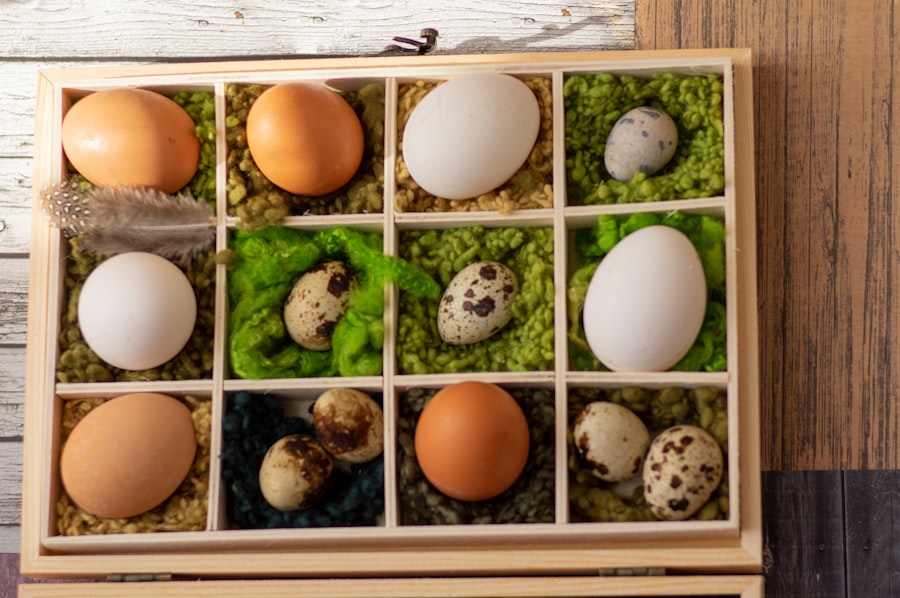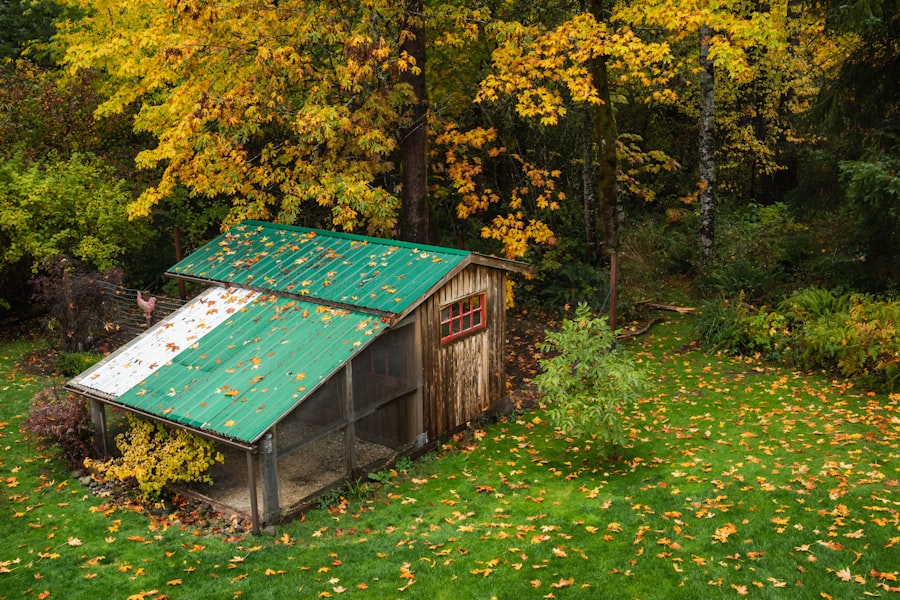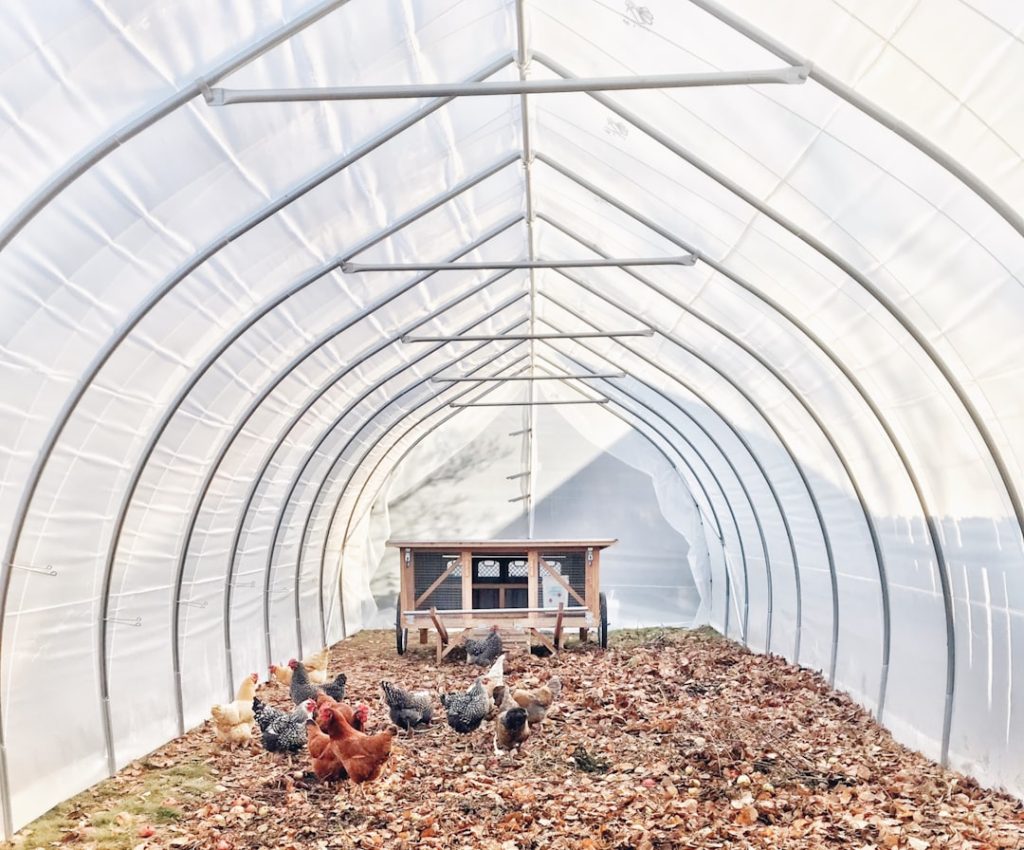When selecting chicken breeds for a backyard flock, several factors should be considered. Climate is a crucial element, as certain breeds are better adapted to cold or warm environments. The available space in the backyard is also important, as some breeds require more room to roam while others can thrive in smaller areas.
The intended purpose of the chickens is another key consideration. Breeds vary in their egg-laying capacity, meat quality, and dual-purpose characteristics. It is essential to choose a breed that aligns with the desired outcome, whether it be egg production, meat, or both.
Temperament is an additional factor to consider, especially for families with children. Some breeds are known for their docile and friendly nature, making them suitable for households with young members, while others are more independent and less amenable to handling. Thorough research is recommended to identify breeds that best match specific requirements and preferences.
This ensures a successful and satisfying backyard chicken-keeping experience.
Table of Contents
- 1 Setting up a safe and secure coop and run
- 2 Providing proper nutrition and water for your chickens
- 3 Maintaining good hygiene and cleanliness in the coop
- 4 Protecting your chickens from predators
- 5 Providing enrichment and entertainment for your chickens
- 6 Monitoring the health and well-being of your chickens
- 7 FAQs
- 7.1 What are the benefits of keeping chickens in your back garden?
- 7.2 What do chickens need to thrive in a back garden setting?
- 7.3 How much space do chickens need in a back garden?
- 7.4 What should I feed my chickens in a back garden setting?
- 7.5 How do I keep my chickens healthy in a back garden setting?
- 7.6 What are some common predators to be aware of when keeping chickens in a back garden?
- 7.7 Are there any local regulations or ordinances I need to be aware of when keeping chickens in my back garden?
Key Takeaways
- Consider the climate, space, and purpose of raising chickens when choosing the right breed for your backyard.
- Ensure the coop and run are predator-proof with sturdy fencing, secure latches, and proper ventilation.
- Provide a balanced diet of chicken feed, fresh water, and occasional treats like fruits and vegetables.
- Regularly clean the coop, replace bedding, and remove any droppings to prevent disease and parasites.
- Install predator-proof fencing, motion-activated lights, and secure locks to protect your chickens from predators.
- Offer activities like perches, dust baths, and hanging treats to keep your chickens mentally and physically stimulated.
- Regularly check for signs of illness, provide veterinary care when needed, and observe their behavior for any changes in health or well-being.
Setting up a safe and secure coop and run
Coop Considerations
When it comes to the coop, you’ll want to make sure it provides enough space for your chickens to roost, nest, and move around comfortably. It’s important to consider ventilation, natural light, and insulation to ensure a healthy environment for your flock.
Predator-Proofing and Security
The coop should be predator-proof, with secure latches and sturdy construction to keep out unwanted visitors. In addition to the coop, a secure run is essential for allowing your chickens to safely roam and forage outdoors. The run should be enclosed with wire mesh to prevent predators from gaining access, and it should also provide protection from the elements.
Run Requirements and Enrichment
It’s important to consider the size of the run in relation to the number of chickens you have, as well as providing enrichment such as perches, dust baths, and shade. By creating a safe and secure environment for your chickens, you can ensure their safety and well-being.
Providing proper nutrition and water for your chickens

Proper nutrition and access to clean water are essential for the health and well-being of your chickens. When it comes to feeding your flock, it’s important to provide a balanced diet that includes a high-quality commercial feed, as well as access to fresh greens, grains, and kitchen scraps. Different breeds and ages of chickens have different nutritional needs, so it’s important to research and provide the appropriate feed for your specific flock.
Additionally, providing access to grit and oyster shell can help support digestion and eggshell quality. In addition to proper nutrition, access to clean water is essential for your chickens’ health. Chickens require a constant supply of fresh water to stay hydrated and maintain their overall health.
It’s important to regularly clean and refill waterers to prevent contamination and ensure that your chickens have access to clean water at all times. By providing proper nutrition and access to clean water, you can help support the health and vitality of your flock.
Maintaining good hygiene and cleanliness in the coop
Maintaining good hygiene and cleanliness in the coop is essential for preventing disease and promoting the overall health of your flock. Regular cleaning of the coop is important to remove droppings, soiled bedding, and debris that can harbor bacteria and parasites. It’s important to establish a regular cleaning schedule that includes removing soiled bedding, scrubbing surfaces, and disinfecting with a poultry-safe cleaner.
Additionally, providing proper ventilation can help reduce moisture and ammonia levels in the coop, which can contribute to respiratory issues in chickens. In addition to regular cleaning, it’s important to provide clean bedding such as straw or wood shavings to absorb moisture and provide a comfortable roosting area for your chickens. By maintaining good hygiene and cleanliness in the coop, you can help prevent the spread of disease and create a healthy environment for your flock to thrive.
Protecting your chickens from predators
Protecting your chickens from predators is essential for their safety and well-being. Common predators such as raccoons, foxes, hawks, and snakes can pose a threat to your flock, so it’s important to take measures to keep them out of your coop and run. This can include installing hardware cloth or welded wire mesh around the coop and run, securing latches on doors and windows, and using predator-proof locks on feeders and waterers.
Additionally, it’s important to consider other deterrents such as motion-activated lights or sound devices, as well as keeping the area around the coop clear of brush and debris that can provide cover for predators. By taking proactive measures to protect your chickens from predators, you can help ensure their safety and reduce the risk of loss due to predation.
Providing enrichment and entertainment for your chickens

Natural Behaviors
Providing access to a variety of perches at different heights, as well as areas for dust bathing such as a shallow box filled with sand or diatomaceous earth, can help keep your chickens engaged in natural behaviors like scratching, pecking, and perching.
Foraging Activities
Providing access to fresh greens, fruits, vegetables, and kitchen scraps can provide enrichment through foraging activities. This allows your chickens to engage in their natural instinct to search for food, keeping them mentally stimulated and active.
Entertainment Ideas
You can also consider hanging treats or toys such as cabbage pinatas or hanging mirrors for entertainment. By providing enrichment and entertainment for your chickens, you can help promote their overall well-being and happiness.
Monitoring the health and well-being of your chickens
Monitoring the health and well-being of your chickens is essential for early detection of any potential issues or illnesses. It’s important to regularly observe your flock for any signs of illness or injury, such as changes in behavior, posture, appetite, or egg production. Additionally, checking for any abnormalities in droppings or physical appearance can help identify potential health concerns.
In addition to regular observation, it’s important to establish a relationship with a poultry veterinarian who can provide guidance on preventative care, vaccinations, and treatment options if needed. By monitoring the health and well-being of your chickens on a regular basis, you can help ensure early intervention if any issues arise and promote the overall health of your flock. In conclusion, raising backyard chickens can be a rewarding experience that provides fresh eggs, natural pest control, and the enjoyment of caring for these unique animals.
By choosing the right breed of chickens for your specific needs, setting up a safe and secure coop and run, providing proper nutrition and water, maintaining good hygiene and cleanliness in the coop, protecting your chickens from predators, providing enrichment and entertainment, and monitoring their health and well-being, you can create a healthy and happy environment for your flock to thrive. With proper care and attention, backyard chickens can become beloved members of your family while also providing valuable benefits to your home and garden.
If you’re looking for ideas on how to keep chickens in your back garden, you might want to check out this article on Hannah Montana Chicken Coop. This article provides tips and inspiration for building a stylish and functional chicken coop that will keep your feathered friends happy and healthy. Whether you’re a beginner or an experienced chicken keeper, you’ll find plenty of useful information in this article.
FAQs
What are the benefits of keeping chickens in your back garden?
Keeping chickens in your back garden can provide you with a sustainable source of fresh eggs, natural pest control for your garden, and a source of organic fertilizer for your plants.
What do chickens need to thrive in a back garden setting?
Chickens need a secure coop or shelter to protect them from predators and the elements, access to fresh water and a balanced diet, and space to roam and forage.
How much space do chickens need in a back garden?
Chickens need at least 2-3 square feet of space per bird inside the coop, and at least 8-10 square feet of outdoor space per bird for foraging and exercise.
What should I feed my chickens in a back garden setting?
Chickens need a balanced diet that includes a commercial feed specifically formulated for chickens, as well as access to fresh greens, grains, and occasional treats like mealworms or kitchen scraps.
How do I keep my chickens healthy in a back garden setting?
To keep your chickens healthy, provide them with regular access to clean water, a clean and dry living environment, and regular health check-ups from a veterinarian experienced in poultry care.
What are some common predators to be aware of when keeping chickens in a back garden?
Common predators that may threaten chickens in a back garden setting include foxes, raccoons, hawks, and domestic dogs. It’s important to secure the coop and outdoor space to protect the chickens from these threats.
Are there any local regulations or ordinances I need to be aware of when keeping chickens in my back garden?
Before keeping chickens in your back garden, it’s important to check with your local government or homeowners’ association for any regulations or ordinances regarding keeping poultry on residential properties.
Meet Walter, the feathered-friend fanatic of Florida! Nestled in the sunshine state, Walter struts through life with his feathered companions, clucking his way to happiness. With a coop that’s fancier than a five-star hotel, he’s the Don Juan of the chicken world. When he’s not teaching his hens to do the cha-cha, you’ll find him in a heated debate with his prized rooster, Sir Clucks-a-Lot. Walter’s poultry passion is no yolk; he’s the sunny-side-up guy you never knew you needed in your flock of friends!







